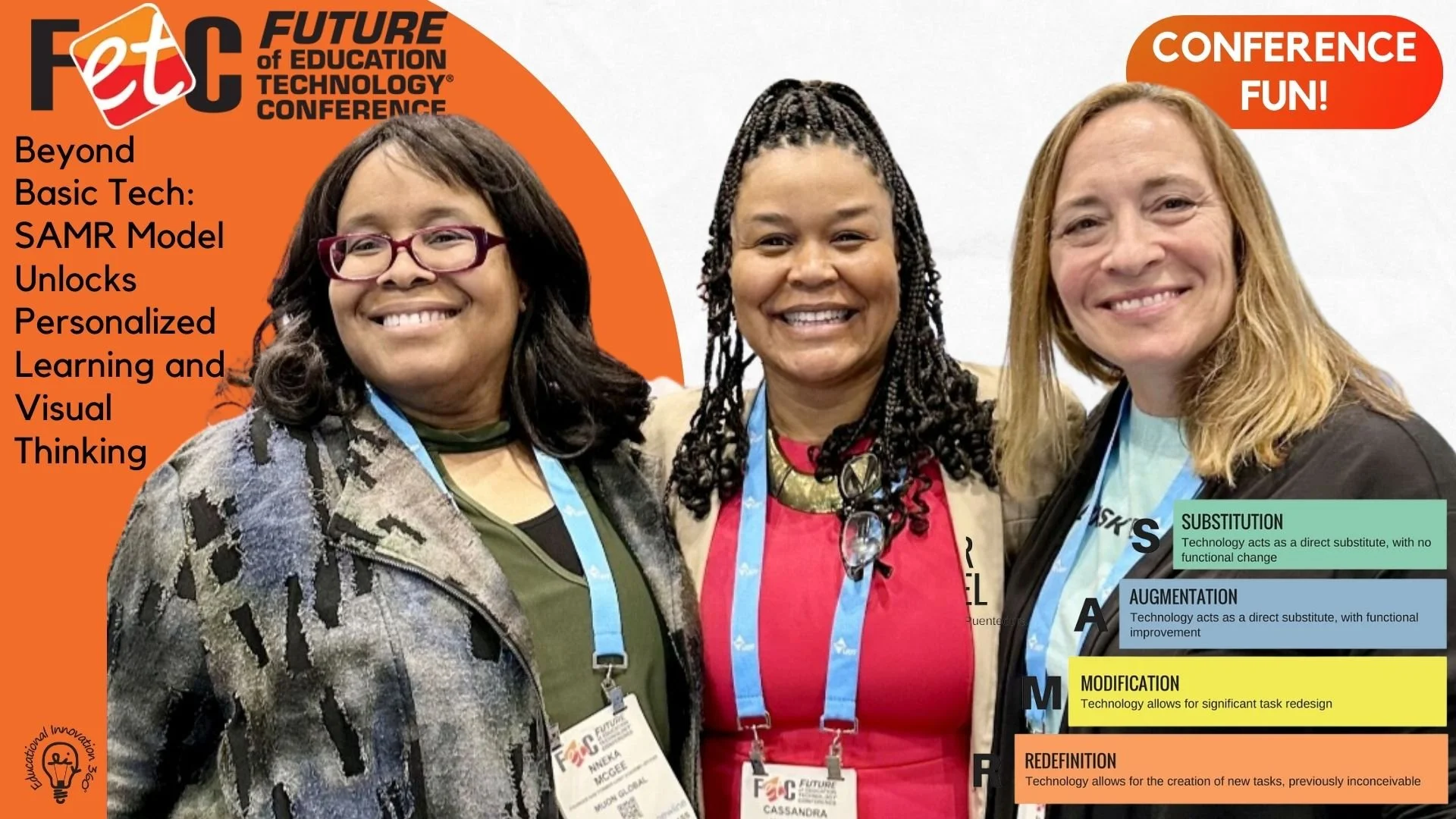Discover how school leaders and instructional coaches are reshaping professional development in 2025 through differentiated, personalized pathways and AI-powered solutions.
Read MoreAre your teachers effectively integrating technology to maximize student engagement and achievement? In this blog, Cassandra Williams shares insights from her SAMR presentation at the FETC conference, highlighting the importance of supporting educators, monitoring tech usage to optimize budgets, and rolling out the SAMR model across K-12 schools.
Read MoreDiscover the future of education in our latest content, and take a look at the transformative impact of artificial intelligence in classrooms. Join us as we explore how AI is reshaping educational paradigms, fostering collaboration, and enhancing learning experiences.
Read MoreHow do new teachers navigate the transition from structured college classrooms to the diverse and often chaotic real-world teaching environments? As they step into contemporary classrooms, they're met with unfamiliar teaching styles, unexpected challenges, and the need for effective observation and adaptation. With various learning styles and teaching methods at play, how can educators ensure they're embracing the best strategies for genuine student engagement and growth?
Read MoreDiscover the significance of inclusive curricula in education and unlock practical strategies that will empower you as an educator. Dive into our blog to explore the transformative potential of embracing diversity and gain valuable insights to create an inclusive learning environment for your students.
Read MoreAs a teacher, your voice is crucial for delivering lessons effectively, but it can also lead to voice strain symptoms. Engaging your students in curricular conversations can reduce the amount of direct instruction needed and create a student-centered learning environment. By using alternative methods of giving instructions, teachers can preserve their vocal health while enhancing the quality of instruction.
Read More






